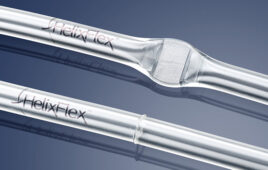It’s often said that drugs don’t work if you don’t take them — but the issue of medication nonadherence is at epidemic levels in the U.S.
According to a New York Times report from earlier this year, around 125,000 people die in the U.S. every year because they didn’t take prescribed medications for long enough or at all. The problem puts a $100-$289 billion burden on the American healthcare system every year.
Several tech-based solutions have emerged in recent years to help keep patients on track with their medication. For example, a mobile application called emocha allows patients to quickly record a video of themselves taking their meds and then shoot it back to their healthcare provider to show that they are staying compliant.
According to emocha, one study showed that using the company’s app achieved adherence rates as high as 95 percent. On average, medication adherence rates are about 50 percent.
This change doesn’t just improve patient outcomes — it is also a boon for patient’s struggling with the expense of coming into a clinic for a daily course of treatment.
“We are closely in touch with the clinicians that we serve and we get amazing stories from patients who could not afford to come to the clinic every day, who might have had to quit their job to make a treatment regimen work for them,” Sebastian Seiguer, the company’s CEO, says.
Seiguer, who was a lawyer before starting the company, saw the potential in the technology when he heard about how it was being used in clinical trials. In 2013, he launched emocha for hospital and clinical settings.
So far, about 30 different healthcare sites around the country are administering the technology, and it has mostly been used by patients with tuberculosis, hepatitis C, HIV or on medications to treat opioid addiction. But Seiguer says the company is focused on expanding into chronic illnesses like diabetes.
And while some elderly patients may not own a smart phone, which can be a barrier to using the technology, Seiguer says the app is a breeze to figure out.
“We’ve had a 70-year-old who speaks no English use the technology without issue,” he says. “One thing that sets us apart from other smart phone technologies is that ours is built for patients to use quickly and easily.”




